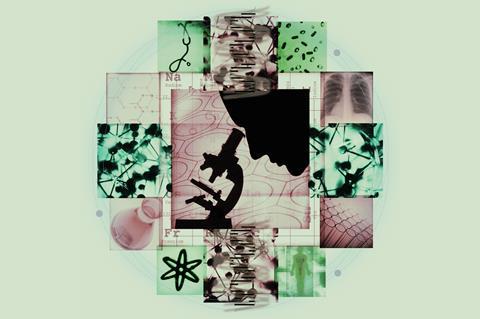Appreciating technology’s role in understanding how the world works

More and more often we hear about technological innovations that go beyond anything we could have imagined. Today, the epitome of such innovations is artificial intelligence (AI), which has transformed from a theoretical idea explored in movies and books to a tool whose capabilities and dangers we are now trying to control. But, from smart (and not so smart) machines that clean our houses, to robots that tell us how to take care of our health and life-saving drugs, there is little if anything in our life that is not somehow influenced by technology and its products.
Traditionally, philosophy of science (especially of the Anglo-American tradition) was not interested in how scientists develop technological tools or use them to produce theories. It focused on scientific theories: how they are confirmed, what they say about the world and what sort of explanations they offer. In this context and as far as it mattered, scientists were regarded as ideal rational agents and technology as a means to produce knowledge. How scientists work was thought to be the business of sociology, anthropology or perhaps psychology.
In this context, a separate field called ‘philosophy of technology’ emerged that aimed to describe how technological products are developed and identify their role in society. Ethical issues inevitably play a central role in such analyses, with important questions being raised about technology’s sociopolitical role.
Underlying this mentality is the idea that science is distinct, if not also superior to technology. While science aims at discovering truth, technology is developed to be useful. Philosopher Henryk Skolimowski says it nicely: ‘In science we investigate the reality that is given; in technology we create a reality according to our designs. In short, science concerns itself with what is, technology with what is to be’.1
This perception of technology’s relation to science has started to shift. Some philosophers of science claim that technology and science are much more intertwined, going so far as to suggest that the two cannot be clearly demarcated. For example, it is argued that a key feature of science – the production of knowledge – is a feature of technology as well. Through the design and construction of processes, technology offers knowledge and understanding of natural phenomena.2
There are several chemical examples that illustrate this. Recently, chemists Igor Larossa and Jordi Bures from the University of Manchester developed an AI model that they claim can offer a better understanding of catalyst decomposition pathways for certain types of chemical reactions.3 But one need not make reference to AI in order to illustrate how technology contributes to the production of knowledge. Take the invention of the microscope in the 17th century, which revolutionised how people saw the world. As chemist and historian of science Lawrence Principe says: ‘With the equally new microscope, they saw the delicate details of a bee’s stinger, fleas enlarged to the size of dogs, and discovered unimagined swarms of ‘little animas’ in vinegar, blood, water, and semen.’4
To better explain the intricate relation of technology and science, philosophers are now pursuing a much closer analysis of how technology informs key scientific concepts, such as confirmation, explanation, observation, truth, causation and knowledge. In fact, philosopher Federica Russo has recently argued in favour of using the term ‘techno-science’ to promote the idea that science and technology are much more intertwined than previously thought. She claims that knowledge in science is ‘co-produced’ by both human and artificial agents.5 Artificial agents do not only include AI but in general instruments and technological tools that play a vital role in the process of producing scientific knowledge.
Indeed, it is not hard to see how artificial agents are involved in the production of new knowledge in chemistry. The discovery of new chemical elements is perhaps the most striking example of this. From the use of mass spectroscopy to particle accelerators, technology has played an indispensable part in element discovery. Reaction engineering is another example where ‘applied science’ plays a crucial role in understanding catalysis and discovering new reaction mechanisms.
Thinking of knowledge as a result of ‘techno-science’ prompts further questions. For example, who should be held responsible for the discovery of – say – a new inorganic compound: AI software, the engineers who developed it, or all those chemists whose empirical data formed the basis on which the AI software managed to produce its results?
Moreover, are there boundaries to what technology should be used for, and how do we set them? In 2020, Collaborations Pharmaceuticals was asked to investigate how software that was used to synthesise drugs could be employed to construct biological and chemical weapons. By amending some parameters of the software, they managed to not only generate known toxic molecules but also come up with previously unknown hazardous substances.
All this sounds quite scary. However, this is because we have not yet understood the full capacities and limits of recent technological innovations. Identifying precisely the relation of science to technology is necessary to gain such an understanding and therefore to control these admittedly overwhelming advances.
References
1 H Skolimowski, Technol. Cult., 1966, 7, 371 (DOI: 10.2307/3101935)
2 H Radder, From commodification to the common good: Reconstructing science, technology, and society. University of Pittsburgh Press, 2019
3 J Burés and I Larrosa, Nature, 2023, 613, 689 (DOI: 10.1038/s41586-022-05639-4)
4 L Principe, The scientific revolution: A very short introduction. Oxford University Press, US, 2011, p21
5 F Russo, Techno-scientific practices: an informational approach. Rowman & Littlefield, 2022

















No comments yet